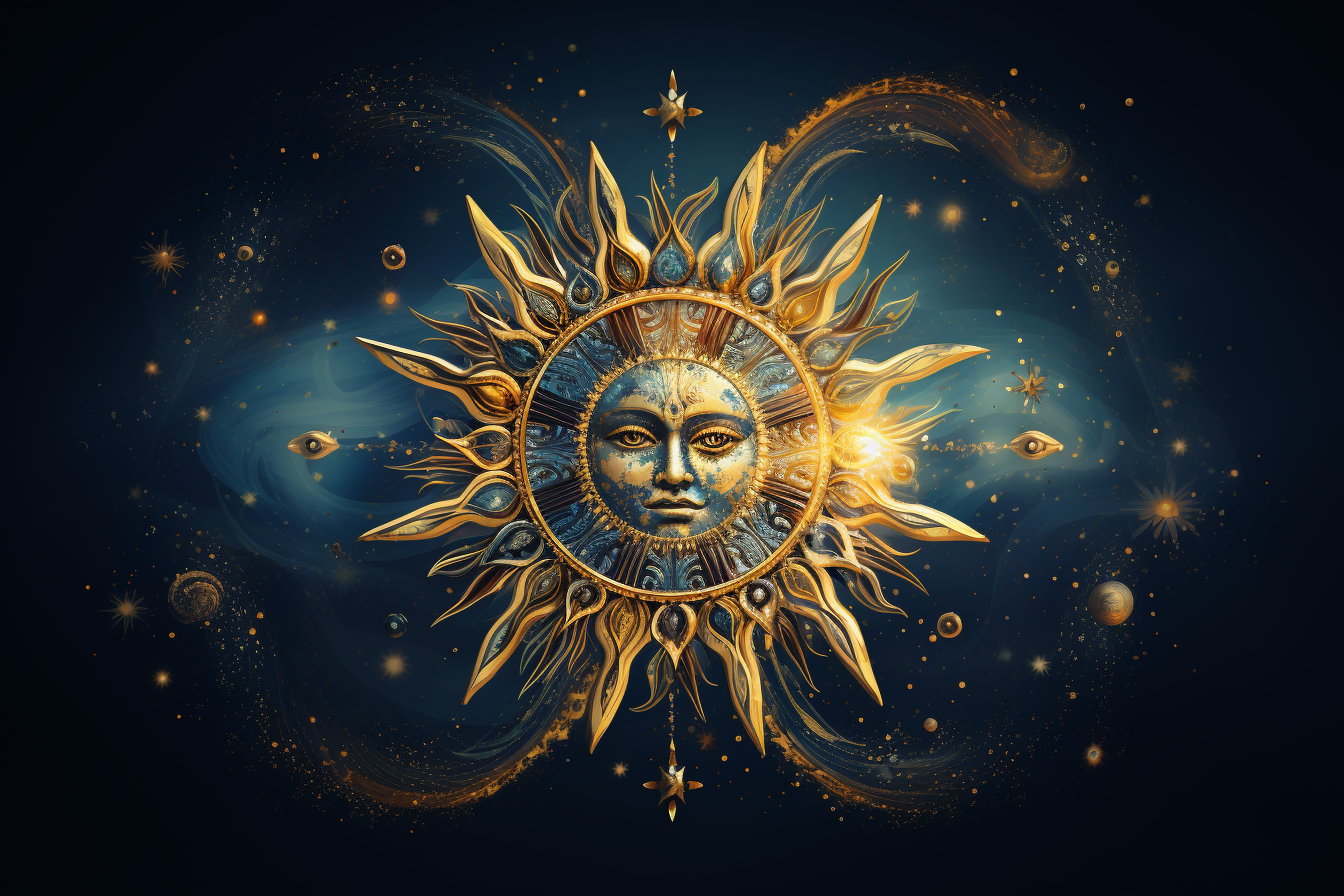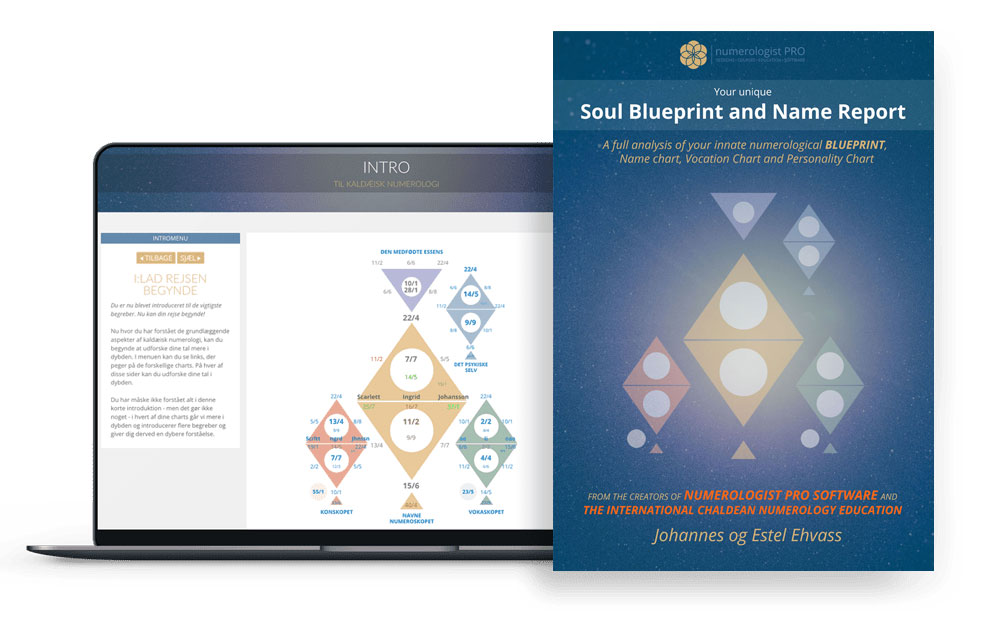The Sun in Astrology

Johannes Ehvass
Welcome, dear reader! In this series of articles, we delve into the fascinating realm of astrology and its emphasis on the heavenly bodies. Each heavenly body, replete with its own attributes and mythic tales, significantly influences our personalities, destinies, and the subtle web of connections in our lives. As we explore these celestial bodies, we will uncover the enduring insights and intricate details that make astrology an intriguing and enduring field. Join me on this journey to discover the mysteries and allure of the planets.
The Sun: Its Cosmic Background and Symbolism
Introduction

In the vast cosmos, the Sun stands as a beacon of life, light, and vitality for our solar system. It’s not just a celestial body radiating warmth and energy but is deeply ingrained in the very fabric of human culture, spirituality, and astrology. Understanding the Sun’s astronomical significance, its symbolic representations, and its role in astrological history provides a foundational appreciation for its importance in astrology.
Astronomical Significance
The Sun’s Role in Our Solar System:
The Sun, a G-type main-sequence star (G2V), lies at the heart of our solar system. Comprising over 99.8% of the total mass of the entire solar system, its gravitational force binds planets, asteroids, comets, and other celestial bodies in harmonious orbits around it. It’s not just a stationary entity but rotates, with its equator taking approximately 24 to 25 days to complete a rotation.
Beyond being the system’s gravitational center, the Sun plays a crucial role in sustaining life on Earth. Its radiated energy fuels photosynthesis in plants, ensuring food availability for the ecosystem. Its cycles and patterns, such as solar flares and sunspots, can influence Earth’s climate and electromagnetic phenomena.
Impact on Earth’s Cycles, Seasons, and Life:
Earth’s axial tilt and its orbit around the Sun give birth to the seasons. As Earth orbits the Sun, different parts receive varying sunlight intensities, resulting in the cyclical patterns of spring, summer, autumn, and winter. These cycles have profound implications on agriculture, animal behavior, and human lifestyles. The Sun also regulates circadian rhythms, influencing sleep patterns, behavior, and hormonal balances in many organisms, including humans.
Symbolic Representations
The Sun as a Universal Symbol:
Across time and cultures, the Sun has been a symbol of life, authority, and consciousness. Its daily emergence and descent painted a tale of rebirth, renewal, and cyclical patterns of existence.
Historical and Cultural Interpretations:
In ancient Egypt, the Sun god Ra was revered as the ruler of the heavens, representing creation and renewal. For the ancient Greeks, Helios personified the Sun, riding his chariot across the sky daily. In Norse mythology, Sol (or Sunna) was the goddess who drove the Sun’s chariot, chased by a wolf, symbolizing the balance of day and night.
Solstice celebrations, found in cultures worldwide, signify the Sun’s zenith or its lowest point in the sky, marking crucial turning points in the solar cycle. From the ancient Stonehenge rituals in England to the Inti Raymi festival in South America, these celebrations revered the Sun’s power and sought its blessings.
The Sun in Astrological History
From the earliest civilizations, the Sun’s predictable pattern led it to become a central figure in astrological systems. Its daily journey across the sky became a metaphor for human life, and its yearly cycle became a template for understanding time’s cyclical nature.
The Dawn of Solar Astrology:
Early Mesopotamian cultures primarily observed lunar cycles for timekeeping and predicting omens. However, with evolving observations, the Sun’s consistent path and its influence on Earth’s seasons made it a pivotal astrological component. Babylonian astrologers, who laid much of astrology’s foundational knowledge, recorded solar phenomena and related them to earthly events, giving birth to solar astrology.
Evolving Sun Significance:
As astrology evolved, so did the understanding of the Sun’s role. Hellenistic astrology, deeply influenced by Babylonian practices, started emphasizing individual natal charts. Here, the Sun sign or the zodiacal sign where the Sun was positioned during one’s birth became a primary descriptor of personality and fate. This concept carried through, with modifications, into modern Western astrology, where one’s Sun sign remains a key identity.
Conclusion
The Sun, both in its astronomical grandeur and symbolic depth, holds a pivotal role in human understanding and spirituality. Its daily and yearly patterns have shaped human behavior, rituals, and philosophies. As astrology emerged and evolved, so did the Sun’s significance, transitioning from a mere celestial body to a profound
The Sun in Major Astrological Traditions
Western Astrology:
How the Sun Represents the Ego, Willpower, and Core Self
The Sun in Western astrology symbolizes the core essence of a person, their spirit, and vitality. It is often linked with one’s ego, portraying the conscious self, the personality, and the way one wishes to be seen. When someone asks, “What’s your sign?” in Western culture, they are typically referring to the Sun sign. This focus underscores the importance placed on the Sun in interpreting an individual’s fundamental nature, motivations, and desires.
Its Role in the Natal Chart and Solar Return
The natal chart, or birth chart, is a snapshot of the sky at the exact moment of one’s birth. In this chart, the Sun’s position by zodiac sign and house provides insight into one’s strengths, challenges, and life journey. Additionally, a solar return chart, drawn every year on your birthday, offers forecasts for the coming year by analyzing the Sun’s return to its exact natal position.
Vedic (Indian) Astrology:
The Sun (Surya) as a Representation of the Soul and Its Karmic Journey
In Vedic astrology, the Sun, known as Surya, is a symbol of the soul. While the Moon represents the mind and emotions, Surya embodies the soul’s eternal essence. It indicates a person’s karmic path, their duties, and the lessons they must embrace in this lifetime. Being associated with the father in Vedic astrology, the Sun also speaks of one’s lineage and ancestors.
Sun’s Relation to the Concept of Dharma
Dharma, a fundamental concept in Indian culture, refers to one’s duty or righteous path. The Sun in Vedic astrology illuminates the path of dharma for an individual, guiding them towards their true calling and moral duties. A strong Sun in one’s chart can indicate leadership qualities, integrity, and a sense of purpose aligned with their dharma.
Chinese Astrology:
The Role of the Sun in Determining Yearly Cycles
Chinese astrology predominantly revolves around the lunar calendar and the twelve animal zodiac signs. However, the Sun plays a vital role in determining the solar year, which begins with the Chinese New Year and is celebrated based on the lunar calendar. While the animal signs are central, the solar terms, determined by the Sun’s movements, are essential for marking seasons and guiding agricultural activities.
Its Relationship with the Yin-Yang Balance
The Sun, representing Yang energy in Chinese cosmology, embodies active, masculine, and positive force. Contrarily, the Moon represents the passive, feminine, and negative Yin energy. Together, they maintain the universe’s balance, ensuring the cyclical nature of creation and destruction, growth and rest, and day and night.
Mayan, Egyptian, and Other Traditions:
Throughout history, various cultures have developed their astrological systems, with the Sun playing a pivotal role.
The Mayans, for instance, had a complex calendar system, and while their Tzolk’in calendar was based on the Moon, their Haab’ calendar was solar. This solar calendar, consisting of 18 months of 20 days each (plus a 5-day period), was primarily used for agricultural purposes.
In ancient Egypt, the Sun god Ra held immense significance. The movement of the Sun was integral to their cosmology, and they believed Ra traveled across the sky during the day and journeyed through the underworld at night, battling evil forces to emerge again at dawn.
Other traditions, like those of the Celts, revered the Sun during festivals like Beltane and Midsummer, celebrating its peak and the subsequent anticipation of harvest time.
Regardless of the tradition or system, the Sun remains a central, guiding force, shaping rituals, beliefs, and the understanding of time and self across diverse cultures.
Solar Influence Through the Zodiac
As the Sun journeys through the zodiac, it imprints the essence of each sign on individuals born during that period. The zodiacal placement of the Sun at the time of one’s birth is commonly referred to as their ‘Sun sign’. Let’s explore the Sun’s influence through the signs of the zodiac.
Sun in Aries
Aries, the first sign of the zodiac, signifies new beginnings and is ruled by Mars, the planet of drive and desire. When the Sun is in Aries, it bestows individuals with leadership qualities, bravery, and a pioneering spirit. They are often spontaneous and have an innate urge to initiate and lead. Challenges for Aries Sun individuals may include impatience or a tendency to be overly competitive.
Sun in Taurus
Individuals with the Sun in Taurus, an Earth sign ruled by Venus, value stability, material comforts, and sensual pleasures. They are persistent, loyal, and can be quite stubborn. Their connection to Venus also brings an appreciation for beauty, art, and nature. Challenges may arise from resistance to change and indulgent tendencies.
Sun in Gemini
The mutable air sign Gemini, ruled by Mercury, makes its natives adaptable, curious, and communicative. Sun in Gemini individuals love variety, intellectual stimulation, and are often skilled in languages and expressing ideas. They may, however, struggle with inconsistency and may be seen as superficial due to their diverse interests.
Sun in Cancer
Cancer, a cardinal water sign ruled by the Moon, brings forth nurturing, empathetic, and protective qualities in individuals. They value family and home deeply and often have strong maternal instincts. Their mood-driven nature can sometimes lead to emotional volatility and overprotectiveness.
Sun in Leo
Leo, ruled by the Sun itself, embodies qualities of leadership, pride, and theatricality. These individuals are often charismatic, generous, and have a strong need for recognition. Challenges for Leo Sun people include a susceptibility to flattery and a tendency to be overly dramatic.
Sun in Virgo
Virgo, an Earth sign ruled by Mercury, bestows qualities of meticulousness, practicality, and a service-oriented approach. Individuals with Sun in Virgo are analytical, detail-oriented, and often pursue perfection. Their critical nature can sometimes lead to overthinking and undue self-criticism.
Sun in Libra
The Sun in Libra, an air sign ruled by Venus, encourages a love for harmony, beauty, and partnerships. These individuals seek balance in their lives and are adept diplomats, often playing the peacemaker. They may, however, struggle with decisiveness and over-reliance on others.
Sun in Scorpio
With Scorpio ruled by Mars and Pluto, the Sun in this sign brings forth intensity, depth, and a transformative nature. These individuals are passionate, determined, and have a natural inclination toward the mystical. They might grapple with issues of control and jealousy.
Sun in Sagittarius
The mutable fire sign Sagittarius, ruled by Jupiter, gifts its natives with optimism, a love for adventure, and a quest for knowledge. Individuals with Sun in Sagittarius are freedom-loving, philosophical, and often have a great sense of humor. Over-optimism and restlessness are their potential pitfalls.
Sun in Capricorn
Capricorn, an Earth sign ruled by Saturn, instills qualities of discipline, structure, and ambition. Those with their Sun in Capricorn are determined, practical, and often have a long-term vision. They may need to watch out for tendencies toward pessimism or being overly conservative.
Sun in Aquarius
Ruled by Saturn and Uranus, Aquarius brings forth innovation, humanitarianism, and a somewhat rebellious nature. Sun in Aquarius individuals are forward-thinking, value community, and often challenge the status quo. Their detached nature might sometimes come off as aloofness or emotional distance.
Sun in Pisces
The mutable water sign Pisces, ruled by Jupiter and Neptune, infuses individuals with empathy, dreaminess, and a strong intuitive sense. They are compassionate, artistic, and often spiritually inclined. Challenges include a tendency to escape reality and being overly sensitive.
In conclusion, the Sun’s position by zodiac sign offers profound insights into one’s core being, illuminating strengths, challenges, and inherent qualities. By understanding the Sun’s influence through the zodiac, one gains a deeper self
The Sun in Houses and Aspects
The positioning of the Sun in the astrological houses and its aspects with other planets can profoundly influence an individual’s life path and experiences. Each house represents specific life areas, and the Sun’s placement provides insights into where a person may shine or face challenges. Further, the Sun’s relationships (aspects) with other celestial bodies can enhance or challenge its expression.
Solar Houses
Sun in the 1st House
Individuals with the Sun in the 1st house often possess a strong sense of identity. They are usually confident, self-aware, and have a powerful presence. Their life journey revolves around self-discovery and personal development.
Sun in the 2nd House
Those with the Sun in the 2nd house value material security and often focus on financial stability. They are resourceful and have a natural knack for acquiring assets.
Sun in the 3rd House
Communication and learning are vital for individuals with the Sun in the 3rd house. They are curious, adaptable, and often skilled in writing or speaking.
Sun in the 4th House
Home, family, and emotional security are significant for those with the Sun in the 4th house. They deeply value their roots and often play a central role in family matters.
Sun in the 5th House
Creativity, romance, and self-expression shine through for individuals with the Sun in the 5th house. They are playful, love taking risks, and often have a flair for the arts.
Sun in the 6th House
Dedication to work and a strong sense of duty characterize those with the Sun in the 6th house. They seek perfection in their tasks and often prioritize health and routines.
Sun in the 7th House
Relationships are at the forefront for individuals with the Sun in the 7th house. They thrive in partnerships and often seek balance and harmony in their connections.
Sun in the 8th House
Transformation and deeper connections are the focus for those with the Sun in the 8th house. They often explore mysteries, the occult, and may have an intense approach to life.
Sun in the 9th House
Adventure, philosophy, and higher education beckon those with the Sun in the 9th house. They are eternal students of life, often traveling or exploring various philosophies.
Sun in the 10th House
Profession and public image are vital for individuals with the Sun in the 10th house. They are ambitious, seek recognition, and often play significant roles in their communities.
Sun in the 11th House
Community, friendships, and larger causes are the focus for those with the Sun in the 11th house. They value group dynamics and often work towards humanitarian goals.
Sun in the 12th House
Spirituality and introspection characterize individuals with the Sun in the 12th house. They often explore the unconscious, have a penchant for solitude, and may be drawn to mysticism.
Aspects with Other Planets
Sun Conjunct Moon
This aspect signifies a blending of one’s identity (Sun) with emotions and instincts (Moon). Individuals may experience an alignment of their inner and outer selves but might struggle with merging their wants and needs.
Sun Square Mars
Challenges in asserting oneself can arise with the Sun square Mars aspect. While these individuals possess drive and ambition, they might encounter conflicts and power struggles.
Sun Trine Jupiter
Optimism, expansion, and growth characterize this positive aspect. Those with Sun trine Jupiter often have a broad outlook on life, are lucky, and have a jovial nature.
Sun Opposite Saturn
Those with the Sun opposite Saturn often grapple with feelings of limitation and responsibility. They may face obstacles in asserting their identity, often feeling challenged by authority figures or societal norms. Over time, they learn the value of discipline, perseverance, and resilience, turning their challenges into stepping stones for success.
Sun Sextile Neptune
Individuals with Sun sextile Neptune possess a heightened sense of intuition and creativity. They are often drawn to the mystical and may have artistic talents. This harmonious aspect enables them to seamlessly blend their ego (Sun) with their dreams, intuition, and spiritual inclinations (Neptune).
In summary, the Sun’s placement by house and its aspects with other planets offer nuanced insights into an individual’s life journey, challenges, and strengths. Recognizing these patterns aids in personal growth and self-awareness, enriching the astrological exploration journey.

Johannes & Estel: Renowned authorities in Numerology, Astrology, and the esoteric arts. As the founders of Scandinavia's premier Numerology school, we're delighted to share our insights through this curated series on astrology. Dive in and discover the stars.
The Worlds Most Advanced Numerology Report

Your birthdate reveals your unique life purpose, potentials, talents, weaknesses, and karma in this life.
Your names show what you attract into your life regarding your career, relationships, happiness, money, and success.
GET THE REPORT HERE
Introduction to Astrology
The history of Astrology
Moving beyond deterministic astrology
Foundation of Astrology: Planets, Signs and Houses
Astrology and the Holographic Universe
The Holographic Universe
The Human Psyche as a Mirror to The Solar System
The Human Body as a Mirror to The Star Signs
Astrology Background
Egyptian Astrology
Mayan Astrology
Chinese Astrology
Indian Astrology - Jyotish
Celtic Astrology
Tibetan Astrology
Mesopotamian Astrology
Early Mesopotamian Astrology: The Dawn of Celestial Divination
Enuma Anu Enlil: The Epicenter of Babylonian Celestial Omen Interpretation
Babylonian and Chaldean Astrology
Babylonian and Chaldean Astrology
Chaldean influence and evolution
Chaldean Wisdom: Safeguarding and Transmitting Astrological Knowledge
Hellenistic Astrology
Hellenistic Astrology background
Claudius Ptolemy and Tetrabiblos
Vettius Valens
Dorotheus of Sidon
Persian Astrology
Persian Astrology background
Sassanian Astrology
Late Antiquity and The Transition Period
Late Antiquity and The Transition Period
Hellenistic to Islamic Transition: The Torchbearers of Astrological Wisdom
Islamic Golden Age
Arabian Astrology Background
Arabian Astrology Contributions
Medieval Astrology
Introduction: The Medieval Cosmos
Monastic Preservers: Astrological Knowledge in the Dark Ages
Astrology in Medieval Medicine
Kings, Queens, and Constellations: Astrology in the Medieval Court
The Church and the Stars: A Contentious Relationship
Universities and Scholastic Pursuits: Academic Astrology
Astronomy & Astrology: Tools of the Trade
Medieval Astrological Houses and the Synthesis of Traditions
Transition to the Renaissance: Humanism and the Celestial Arts
Reflections: Medieval Astrology's Echoes in Modern Practice
Astrological Art of the Middle Ages
Famous Medieval Astrologers
Medieval Astrological Texts
Renaissance Astrology
Renaissance Humanism and Astrology
Scientific Advancements and Astrology
The Social Fabric: Astrology in Everyday Renaissance Life
Court Astrologers of the Renaissance
Controversies and Conflicts: Astrology Under Scrutiny
Renaissance Texts and Authors: Continuation of a Tradition
Astrology and Art: Celestial Imagery in the Renaissance
Renaissance Astrological Practices: Evolutions and Innovations
End of the Renaissance: The Gradual Decline of Astrological Influence
Renaissance Astrology's Echo in the Modern World
Enlightenment Astrology
Introduction: The Enlightenment and Astrology
Challenging the Stars: Astrology's Critics during the Enlightenment
Astrology and the New World
Astrology in the 19th Century
The Dawn of Psychological Astrology
Astrology in the 20th Century: A Modern Renaissance
Astrological Associations and Schools
Modern Controversies and Astrology
Astrology and Popular Culture
Astrology and Technology
Current Trends and Future Directions in Astrology
Conclusion: Reflecting on Astrology's Evolution
The Planet Significances
The Sun in Astrology
The Moon in Astrology
Mercury in Astrology
Venus in Astrology
Mars in Astrology
Jupiter in Astrology
Saturn in Astrology
Uranus in Astrology
Neptune in Astrology
Pluto in Astrology
Chiron in Astrology
Black Moon Lilith in Astrology
Pars Fortuna in Astrology
Ceres in Astrology
Houses in Astrology
Introduction to Astrological Houses
The Angular Houses
The Succedent Houses
The Cadent Houses
The 1st House
The 2nd House
The 3rd House
The 4th House
The 5th House
The 6th House
The 7th House
The 8th House
The 9th House
The 10th House
The 11th House
The 12th House
Interaction Between Houses
Derived Houses, House Rulers, and Interceptions
Conclusion: Synthesizing House Knowledge
All Materials © 2023 & 2024 Numerologist PRO
Terms of Service: Information provided by Numerologist PRO and/or from this web site is not intended as advice (medical, psychological, financial or other), nor is it intended to replace your work with a qualified professional (medical or otherwise). You should maintain your relationship with your providers and consider the services of this site as informational only. Any information, stories, examples, or testimonials presented on this website do not constitute a warranty, guarantee, or prediction regarding the outcome of an individual. This web site is a sharing of knowledge and information of numerology/energy work based on the experiences of Numerologist PRO. You are encouraged to make your own decisions based on your own research and inner guidance. By booking and receiving services, you agree to fully release and hold harmless Numerologist PRO and all it's affiliated numerologists from and against any liability or claim that may arise out of or in connection with their service(s).
Numerologist PRO © 2021

CONTACT
numerologist@numerologistpro.com
LIKE US, and get free numerology tools, info about your personal numbers, best business dates of the year - and more!
YOUR FREE NUMEROSCOPE CHART
Enter your name and email below and get access to our free online numerology chart tool.